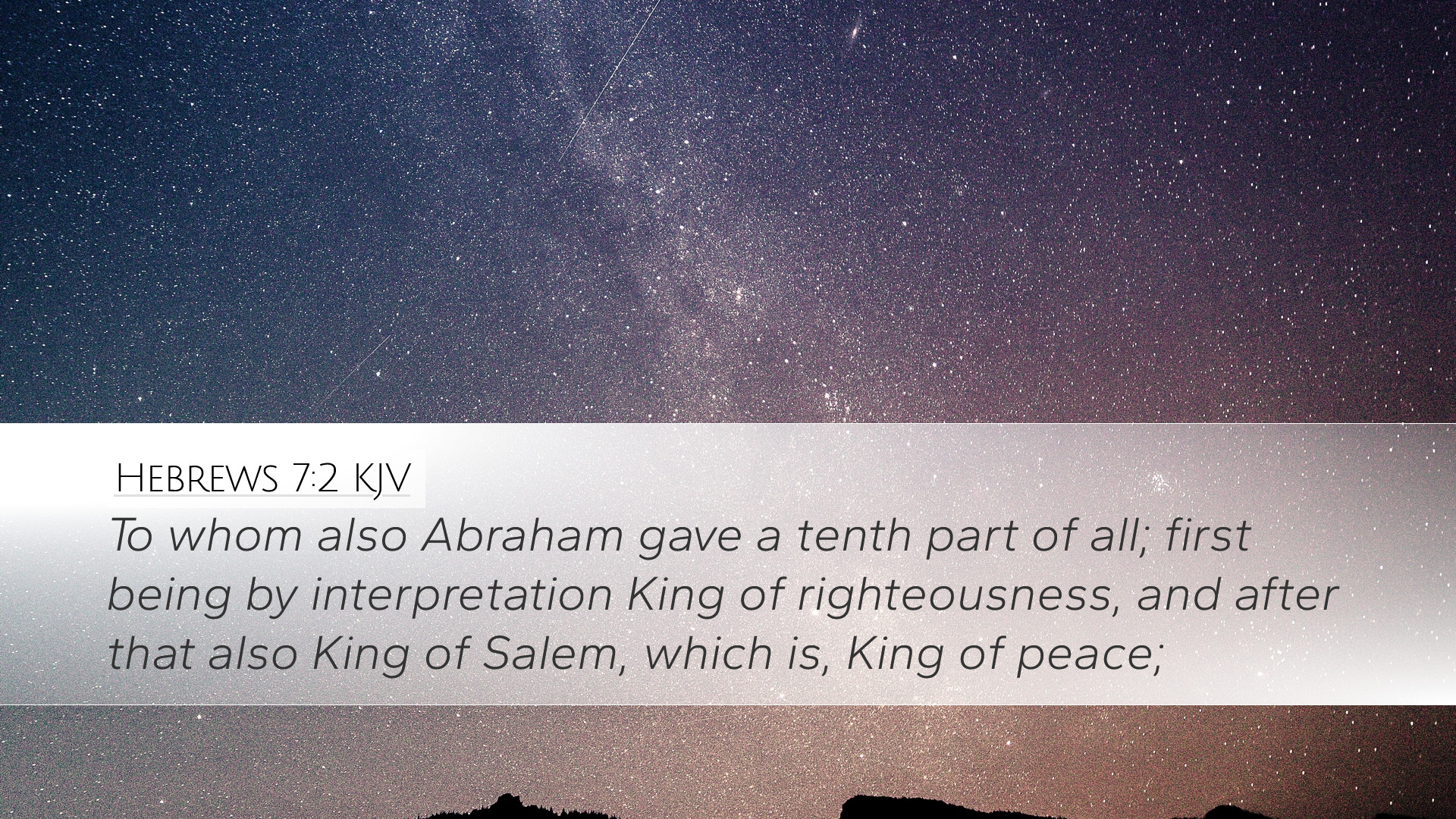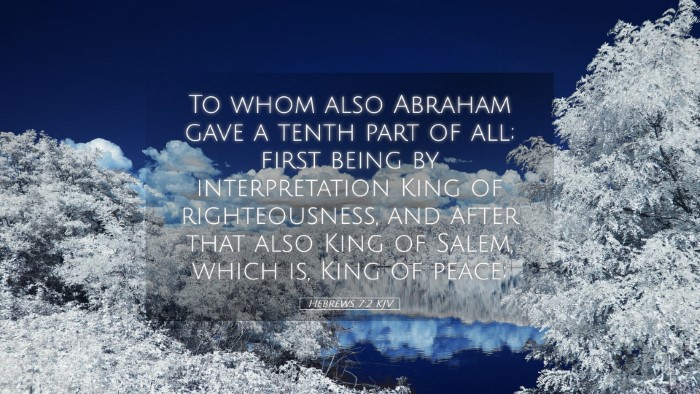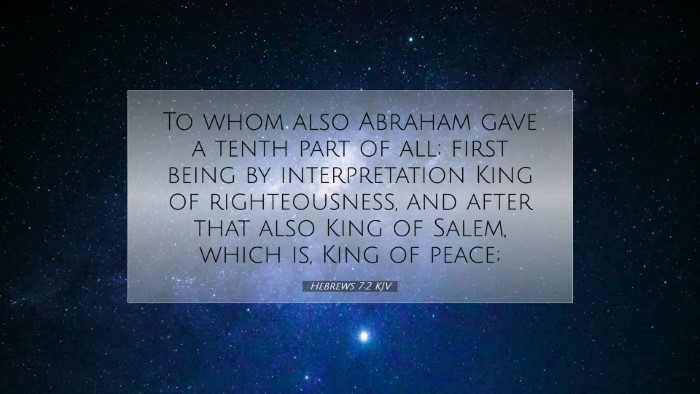Commentary on Hebrews 7:2
Hebrews 7:2 states: "To whom also Abraham gave a tenth part of all; first being by interpretation King of righteousness, and after that also King of Salem, which is, King of peace."
Introduction
This verse introduces Melchizedek, a figure of pivotal significance in the theological reflection on Christ's priesthood. The author of Hebrews draws upon the Old Testament narrative (Genesis 14:18-20) to elucidate the nature and greatness of Melchizedek's priestly order compared to the Levitical priesthood.
Exegesis of Key Terms
-
“King of righteousness”:
Melchizedek's name suggests his role as a ruler of justice and righteousness, which is pivotal in understanding God's governance. Matthew Henry notes the importance of righteousness as foundational to any true leadership position.
-
“King of Salem”:
The term "Salem" is derived from "shalom," meaning peace. Adam Clarke emphasizes that true peace follows from righteousness, illustrating the dual role Melchizedek plays as both king and priest.
-
“A tenth part of all”:
This reference to Abraham's tithe signifies acknowledgment of Melchizedek's authority and divine appointment. Albert Barnes highlights that such an act illustrates Abraham’s recognition of Melchizedek's superiority in spiritual matters.
Theological Significance
This verse underscores the superiority of the Melchizedek priesthood over the Levitical priests, providing a foundation that the author of Hebrews builds upon to argue for the supremacy of Christ's eternal priesthood.
Melchizedek as a Type of Christ
Melchizedek serves as a prototype foreshadowing Christ. His dual kingship and priesthood establishes a model of mediation that is perfected in Jesus. Matthew Henry states that Melchizedek’s appearance signifies God’s provision for a priesthood that is independent of the Aaronic lineage, thereby prefiguring the universal and eternal nature of Christ's work.
The Role of Tithing
Abraham's act of giving a tithe is a recognition of divine authority. This act has implications for understanding stewardship and submission to God's ordained leaders. Albert Barnes discusses the significance of tithes within the context of worship and recognition of God's sovereignty.
Historical Context
The historical setting of Genesis 14 reveals the conflicts and alliances in the early days of Israel's patriarchs. Understanding the socio-political landscape is crucial for grasping the implications of Melchizedek's encounter with Abraham. Melchizedek's blessing to Abraham demonstrates his standing as a significant spiritual leader amidst prevailing powers of the world.
Application for Today's Believers
Pastors and theologians can draw ample lessons from Hebrews 7:2, particularly in the context of leadership and the righteousness required in the exercise of authority.
-
Leadership Qualities:
The qualities embodied by Melchizedek—righteousness and peace—should be the goal for all who lead within the church.
-
Christ's Priesthood:
Believers are reminded that Christ's priesthood is eternal and preeminent, inviting a sense of security and assurance in faith.
-
Tithing and Generosity:
The act of tithing serves not solely as a financial transaction but as a spiritual discipline reflecting acknowledgment of God's provision and blessings.
Conclusion
Hebrews 7:2 is a pivotal verse that encapsulates deep theological truths regarding Christ's priesthood and the nature of leadership in spiritual contexts. By examining the roles and attributes of Melchizedek—king of righteousness and peace—believers are encouraged to reflect on their own spiritual authority, responsibility, and relationship to God’s kingdom.


